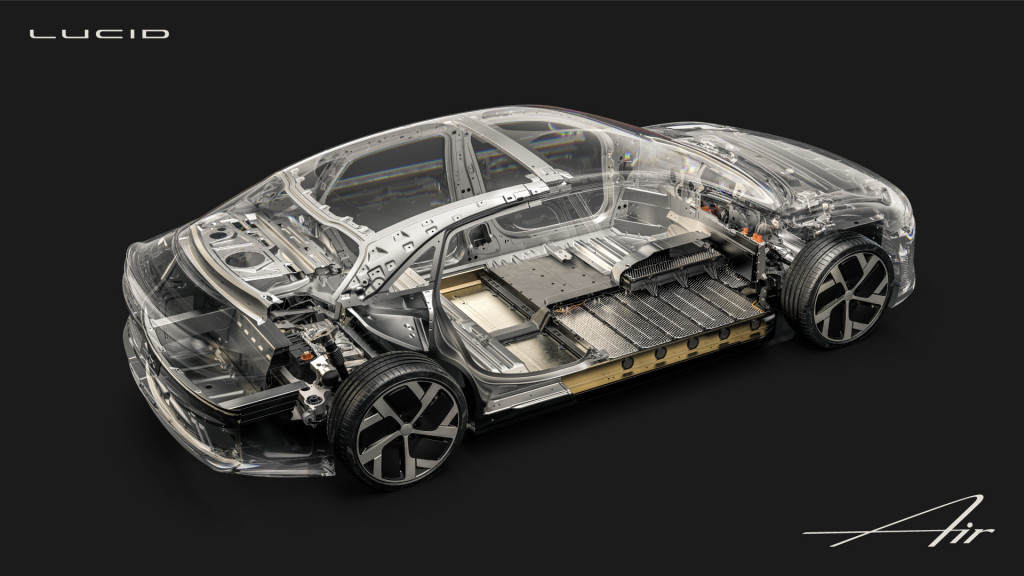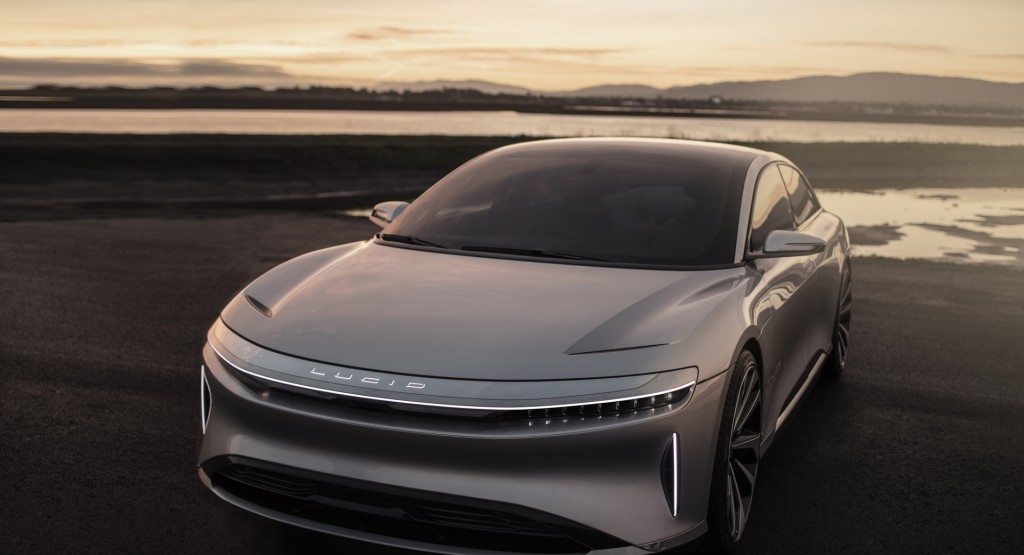California-based Lucid Motors has been saying all along that it’s aiming to maximize efficiency in multiple ways.
On one hand, the Air is the result of a relentless, comprehensive focus on energy efficiency, spearheaded by CEO and CTO Peter Rawlinson. And on the other hand, it’s been designed to be free of the design constraints of internal-combustion vehicles—and what design VP Derek Jenkins has termed the “legacy thinking” of long hoods and wasted space in the name of establishing performance credentials.
Lucid Wednesday got a step closer to showing how it all fits together. It revealed a series of details about the battery pack, drivetrain, and platform that provide a testament to that efficiency in energy and design.

Lucid Air body structure and battery pack
For one, the Air’s expected EPA range of up to 517 miles is all the more impressive given the announced battery capacity of 113 kwh—suggesting a significant efficiency advantage over the Tesla Model S.
While the Air follows a skateboard layout, Lucid says that the battery pack isn’t a brick; it’s shaped around maximizing space. Likewise, it’s capitalized on what it calls the “miniaturization” of the drivetrain and battery pack.
Rawlinson earlier this month explained that the company’s unified, liquid-cooled motor-transmission unit saves a lot of space and incorporates both liquid core cooling and “a breakthrough on the electromagnetism side” that helps boost efficiency.
Lucid previously announced that the battery pack will be filled with 2170-format cylindrical cells—the same size as what's used in the Tesla Model 3 and Model Y—sourced from LG Chem.

Lucid Air
The frunk in the Air has a capacity of 280 liters (9.9 cubic feet), which Lucid says is the largest frunk ever offered in a production EV—far larger than the current leaders in both the car and SUV class. In all, the Air offers 739 liters (26.1 cubic feet), which pegs the rear trunk at more than 16 cubic feet.
Lucid’s plan is to take this “smart range” approach behind the Air—improving range through efficiency rather than by piling in more battery cells—and extend it to future models that will “achieve competitive range from proportionately smaller battery packs, thereby saving cost, weight, and space.”
The improvement through this whole-vehicle efficiency approach is more than just a few percent, Lucid teases. It will release more about that with the sedan’s debut on September 9—including specs, pricing, configurations, and a look at the production version’s design details.
